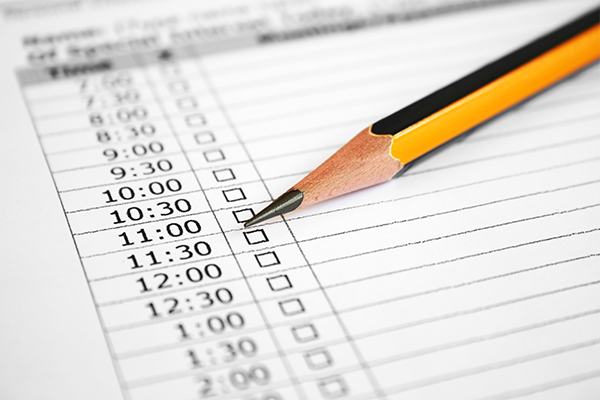Learn how to plan your daily activities is essential to handling priorities.
It is often said that time is our most precious asset. This is because, after being spent, it cannot be recovered. Therefore, managing your time is essential, to avoid that you waste it with unnecessary activities, always being in a hurry and stressed, feeling overwhelmed. How to do this properly?
The key is on take into consideration these 3 main topics:
• Planning;
• Definition of priorities;
• Organization and discipline.
Understanding what each one of these means is not difficult. What is not easy is putting them into practice. To do so, it is necessary to keep the focus on daily implementation. We are going to present below some of the suggestions we could put together so that the time control challenge can be achieved easily.
Planning
Planning your tasks and your working day or week does not require much time. You can separate a few minutes of the morning of each Monday to do this, when starting your working week. Ideally, make a list of activities and estimate the time for each of them. Do it in writing, to be able to look at it and not have to rely completely on your memory. It can be in a notebook, diary, cellphone or at your laptop. For those preferring to use technology, there are many free apps available. Another helpful tool is Google Calendar.
What is the most important is not the manner but the frequency of this action. This is what will make your daily activities more organized and productive. You don’t need to expect this planning to be always right, once you can miscalculate the time in which you will need to perform certain activities. This is quite normal, as long as you keep it up planning and executing your daily routine, you will learn how to improve and adequate your method. For those dedicating a great part of the time in the field, can also benefit from an organized and planned agenda. Making a concise schedule of the visits, organizing them by region, will probably bring effectiveness.
Defining Priorities
After planning, it is time for set your priorities. What are mandatory tasks and what are things that could wait? Understanding what are your priorities can help you concentrate on certain activities, transferring some of them to other people of your team or breaking them in different timings for execution. Always consider that, if you are not giving priority for something, it is because that specific task would not add value or bring better results for your business.
Here comes an important tip: start your day focusing on the most difficult or demanding tasks, after that, do the easier ones – in this way you will optimize your time, once, by the morning, people are more productive.
Organization and Discipline
Regarding organization and discipline, certain recommendations of specialists related to time management should be pointed out:
• Keep your work table clean, as well as your drawers, cupboards and other places where you keep work objects and documents. Thereby, you avoid wasting time looking for objects which should be in a determined place.
• Define times when will not be disturbed. Do the tasks which require greater concentration in these periods, without interruptions of telephone calls, emails and people coming into the room.
• Avoid, whenever possible, to interrupt a task which you have already started. It is counterproductive to interrupt your work, remember where you have stopped and then start over.
Also, related to discipline, the importance of avoiding distractions should be emphasized. All of us are surrounded by lots of them, especially with our smartphones.
Tips to increase productivity
Considered to be one of the greatest Brazilian specialists in personal and business productivity, Christian Barbosa states that in the daily routine of a company there are several elements which can impair the performance of the coworkers, such as the accumulation of tasks and the lack of organization. He presents nine tips to overcome the problem:
• Plan your daily routine beforehand: it is advisable to plan the next 3 working days, to have a broader view of all the capacity of dealing with the urgencies which might arise.
• Determine the time of executing each activity: one strategy is to place the time of each task in the schedule, as if they were meetings. For example, task A will be ended at 10am, task B at 12pm, etc.
• Make a logbook of activities: recording everything which you do in your work period, it is possible to identify where you have wasted time, where it is necessary to have more time and which actions have been not productive.
• Always use the calendar: it can be a schedule in paper or a tool for use in the computer, tablet and smartphone. What is important is to inquire about and control the fulfillment of tasks.
• Know what your terms are: thus, it will be possible to plan the necessary time to execute each activity, without having last minute rushes, which could impact the quality of your work.
• Learn how to say No!: do not absorb more activities than you can manage to deliver.
• Do not waste time: do not distract yourself with games, private conversations and access to social networks. Use your pause or rest times for these.
• Have pauses: reserve a time slot to disconnect your head from your tasks. A pause helps to reduce the stress of the day-to-day, improve your mood, increase creativity and make the work more pleasant.
• Facilitate your processes: a good way of making the execution of tasks more efficient is to organize them into categories. Seek to place similar work together in your daily planning.
Learn more practices that can help you in your work environment. Click here and check it out!



